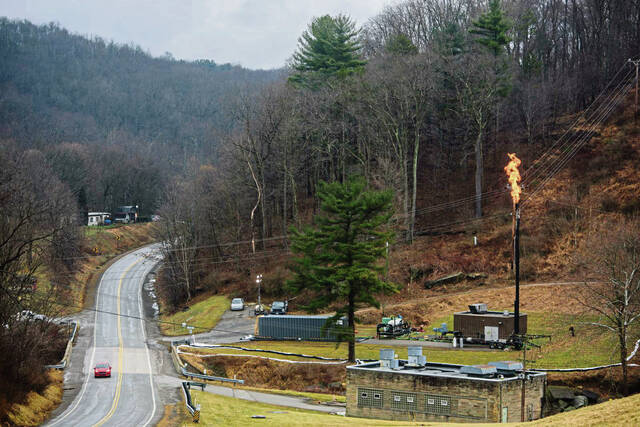As Congress continues to craft a sweeping budget reconciliation bill, provisions within the package threaten to undermine American energy leadership and could potentially lead to higher costs. And few places will feel the pinch like Pennsylvania, the second-largest producer of natural gas in the country, with nearly 500,000 jobs supported by the natural gas and oil industry, and a top-10 energy consumer.
Included in the $3.5 trillion bill is a proposed methane fee that would impose a punitive tax on all aspects of the natural gas supply chain while exempting all other major sources of methane like agriculture and waste management operations. Targeting natural gas and oil, which account for nearly 70% of energy consumption, with higher taxes to pay for trillions in spending will slow new energy investment and production and drive up costs for consumers at a time when inflation is on the rise. The tax could have a $9.1 billion negative impact to the U.S. GDP and cost up to 90,000 jobs.
This is hardly the “Build Back Better” economic and jobs growth promised by the Biden administration.
Imposing a natural gas tax on top of both the U.S. Environmental Protection Agency and the Pennsylvania Department of Environmental Protection’s methane emissions regulations would be exceedingly duplicative, not to mention difficult to implement. The best approach to build upon our environmental progress is the direct federal and state regulation of methane from new and existing sources. Our industry supports methane regulation and is working with federal and state policymakers on these efforts.
And data shows the U.S. is moving in the right direction and reducing emissions.
Between 2011 and 2019, methane emissions per unit of production dropped nearly 70% across the five major-producing basins in the U.S., including Appalachia, while production increased. Since 1990, natural gas production nationally has increased 90%. Even as the world’s largest producer of natural gas and oil, America has among the lowest methane emissions compared to other producing countries.
Similarly, the switch from less clean sources of energy to natural gas in the power sector has led to the lowest carbon emissions rates in a generation. Pennsylvania natural gas helped support 60% of America’s power-related carbon emission reductions over the past 15 years — outpacing coal as the top source of U.S. electricity generation.
Industry-led initiatives, like The Environmental Partnership, a growing coalition of 90-plus natural gas and oil companies, are focusing on new technologies to detect and capture methane emissions. In fact, participating companies reported a 50% decrease in flaring from 2019 to 2020, roughly equating to the natural gas used by 2.9 million U.S. homes during a typical winter season.
Another proposal before Congress is the Clean Electricity Performance Program (CEPP), which aims to reach 80% clean power by 2030 and rapidly overhaul the U.S. power sector, impacting the reliability of the nation’s electricity grid, household energy costs and jobs. However, CEPP fails to recognize the role of natural gas in continuing to drive down greenhouse gas emissions in the power sector.
A similar scenario is playing out in Europe, which relies heavily on wind and solar for electricity generation. With decreasing natural gas supplies and low wind speeds, the price of electricity has doubled over the past year — creating an energy crisis that was entirely avoidable.
In the U.S., natural gas generated a record-high 40% of the electricity in 2020. A recent poll, conducted by Morning Consult on behalf of the Electric Power Supply Association, found that voters are comfortable with continued reliance on natural gas to meet U.S. energy demands, and nearly 73% agree it should be included in clean energy policies.
As American Petroleum Institute President and CEO Mike Sommers recently said when addressing the Economic Club of Pittsburgh, “Thanks in large part to Pennsylvania, America has reduced dependence on foreign producers and increased reliance on our own resources — cleaner, safer and better. And it’s important to note that energy is everything. It’s not just your car’s gas tank.”
Pennsylvania’s shale revolution has helped to power our economy and a lower-carbon future. Yet proposals in Congress that target natural gas and oil, which touch nearly every aspect of our lives, could weaken domestic production, forcing the U.S. to, once again, rely on foreign suppliers, and increase costs for families.
We need policy solutions that support American energy and innovation and preserve our modern way of life – not misguided measures that undermine our progress.
Stephanie Catarino Wissman is executive director of the American Petroleum Institute Pennsylvania








